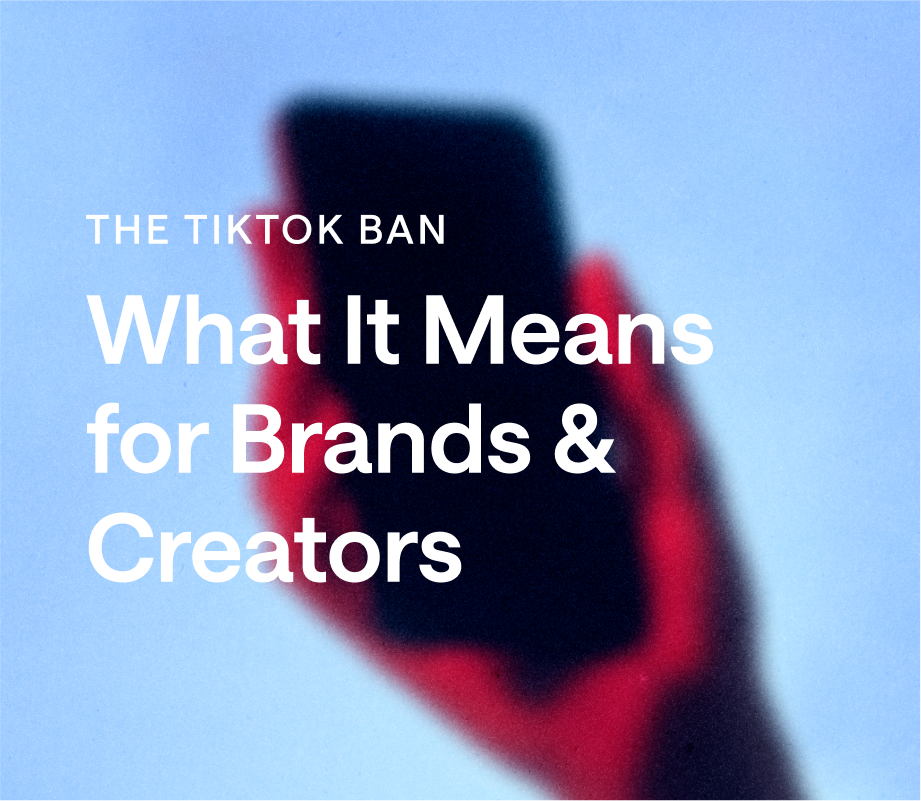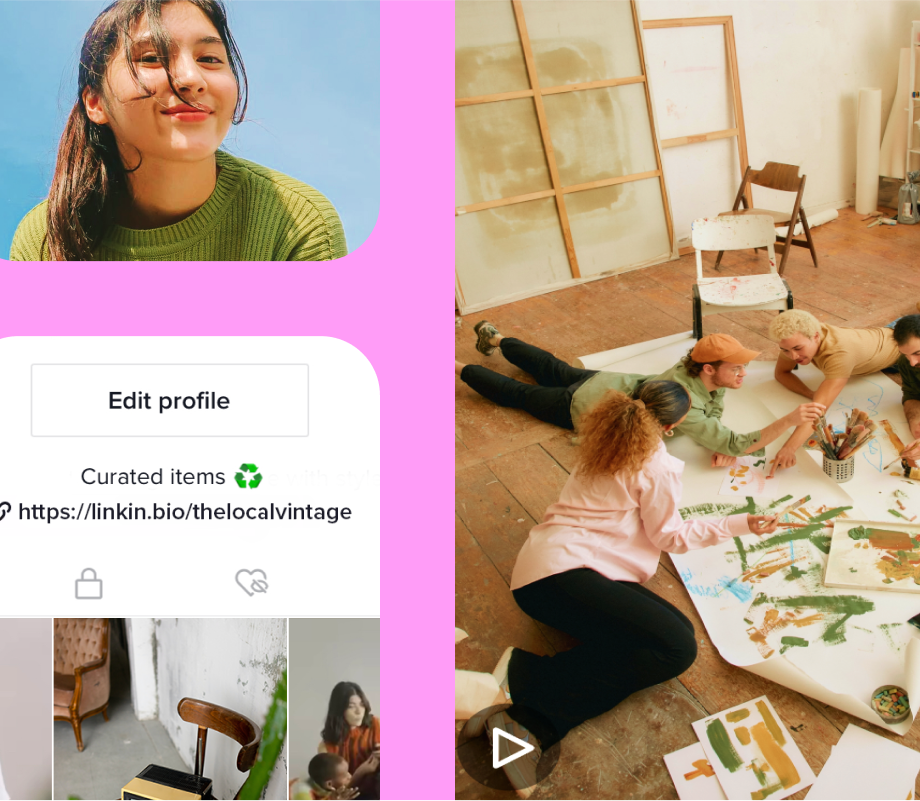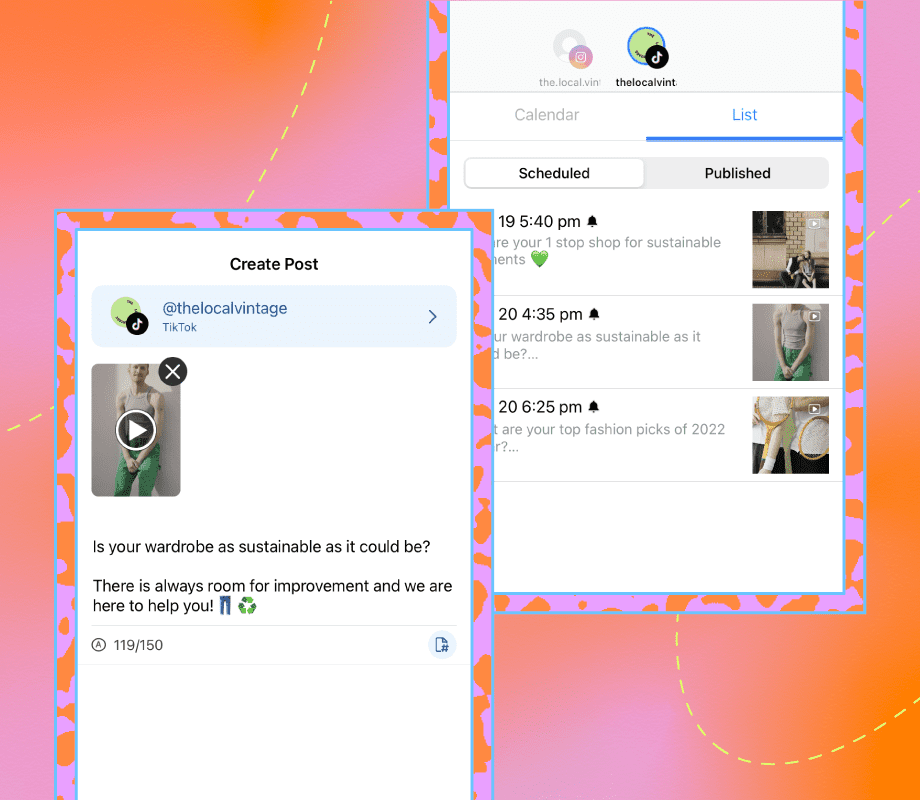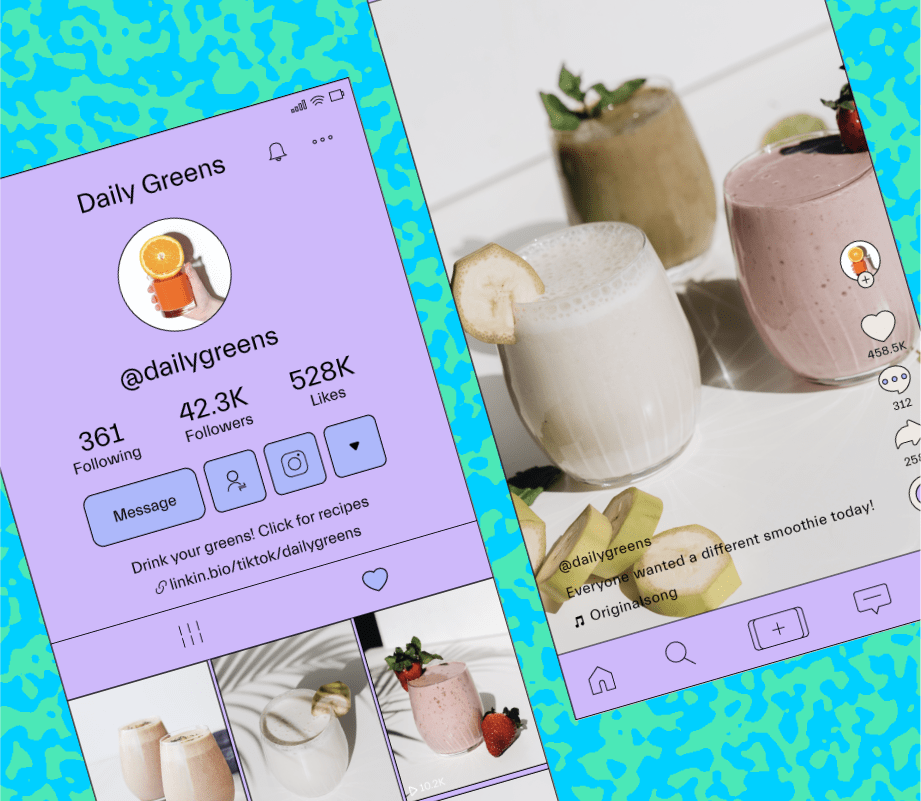The debate over TikTok’s future in the U.S. has been anything but quiet.
A quick recap: The Supreme Court first heard arguments on January 10 about whether TikTok can remain available in the U.S. Then, on January 18, TikTok suddenly went dark—only to restore their services less than 24 hours later. President Trump quickly signed an executive order and extended the deadline for TikTok’s sale to April 5.
Now, President Trump has extended the deadline again, this time for another 75 days.
Here's what you need to know about a potential TikTok ban, its implications, and how to prepare your social strategy.
Table of Contents
Is TikTok Getting Banned?
This is unclear. As of April 4, President Trump extended the TikTok ban deadline for another 75 days, stating that “we do not want TikTok to ‘go dark.’” Reminder: TikTok was ordered to either sell to an approved buyer or risk being banned in the U.S.
Why is the TikTok Ban Happening?
The potential ban stems from long-standing national security concerns about ByteDance's control of TikTok. U.S. officials worry about these main issues:
Data privacy: The government argues ByteDance could be compelled to share American user data with Chinese authorities.
Content manipulation: There are concerns that China could influence American public opinion by controlling what content TikTok's algorithm promotes.
Platform control: Officials argue that having a foreign adversary control one of America's largest social platforms poses fundamental security risks.
During the Supreme Court hearing, the federal government emphasized these "grave national security threats," while TikTok's lawyers countered that the ban would violate free speech rights and shut down a vital platform for expression.
What Will Happen If TikTok Is Banned?
TikTok now has an additional 75 days to sell to an approved buyer. However, a potential ban would likely look similar to the January 18 outage:
New downloads: The app will be removed from the Apple App Store and Google Play Store
Updates: Existing users won't be able to receive app updates or security patches
Infrastructure: Web hosting and cloud services providers must stop supporting TikTok
Existing users: While the app may initially work on phones where it's already installed, it will likely become increasingly buggy without updates
Web access: The web version of TikTok will likely become inaccessible as hosting services comply with the ban
Content availability: Even for existing users, content may become unavailable if cloud services stop hosting TikTok's data (similar to what happened when India banned the app)
What Does the TikTok Ban Mean for Brands?
If you've invested in TikTok marketing, don't panic—but do start planning. Here's what brands and business owners should consider:
1. Diversify Your Content Strategy
The potential TikTok ban highlights a critical lesson: depending too heavily on any single social platform is risky. Smart brands are already:
Repurposing their best TikTok content for Instagram Reels, YouTube Shorts, Snapchat Spotlight, and other video-based platforms
Focusing on owned media like email lists and websites
Developing platform-agnostic content strategies
Doubling down on brand
2. Creator Partnerships May Shift
Many creators will pivot to other platforms, bringing their audiences with them. Brands should:
Review their influencer partnerships and identify which creators have a strong multi-platform presence
Support creators during the transition by being flexible with campaign requirements
Consider how to redistribute marketing budgets across different platforms
3. Short-Form Video and Data Are Here to Stay
While TikTok started the modern short-form video trend, both the format and the need for data-driven decisions aren't going anywhere. Smart brands are:
Using analytics to track where their audiences are most active (and how that trend is changing over time)
Measuring creator performance and ROI across all platforms
Developing strategies based on cross-platform engagement data
Testing content on Instagram Reels, YouTube Shorts, and Snapchat Spotlight
Making decisions based on actual performance metrics, not guesswork
What Does the TikTok Ban Mean for Creators?
The potential ban could significantly impact content creators who've built their livelihoods on TikTok.
According to Later's January 2025 survey results, 87% of creators were concerned about a potential ban, with 88% expecting a decrease in income, with mid-tier (50-500k followers) influencers feeling the most vulnerable.
And it's not just income at stake—creativity and community were also top of mind.
TikTok account @ninandkylie notes how "this platform has enabled us to fully explore our creative side" while @komes_12 told us "it [would] be heartbreaking to lose my audience."
Despite this, creators are ultimately hopeful and see this as a way to adapt to new changes.
Close to half of the creators we spoke to (44%) were already looking into new platforms, with Reels (87%) and Shorts (61%) leading the way as the next best alternatives.
Here's what creators need to know:
1. Platform Diversification is Key
Don't put all your eggs in one basket. Focus on:
Building presence across multiple platforms
Converting TikTok followers to other channels, especially Instagram Reels and YouTube
Finding new, platform-independent ways to reach your audience, like email lists or websites, which you can link out to from your link in bio
At Later, we discovered that TikTok influencers see the best success in carrying their followers over to Instagram over any other platform. Take YouTube, for example—about half of the mid-tier (50-500k followers) and macro (500k+ followers) creators we surveyed have fewer than 10,000 followers on YouTube. TikTok and Instagram popularity doesn't necessarily mean success on YouTube (although it doesn’t mean it’s not worth experimenting).
2. Content Adaptation Strategy
Your content strategy should be flexible enough to work across platforms:
Save and organize your TikTok content
Adapt your most successful formats for other platforms
Test different content styles on various platforms
3. Revenue Stream Protection
Think beyond platform-specific monetization:
Consider creating your own products or services
Build email lists and other owned audience channels
For a deeper dive into creator strategies and support during this transition, check out the expert tips and educational resources available at Mavely University.
How to Prepare for the TikTok Ban to Minimize Impact
Whether TikTok gets banned or not, here's what you can do now:
Download Your Content
Don't risk losing valuable content. Download your TikTok videos and:
Upload them to your Later media library for easy cross-posting
Repurpose top performers for other platforms
Archive them for future reference
Communicate with Your Audience
Let your TikTok followers know where else they can find you:
Update your TikTok bio with your Later Link in Bio with links to other social profiles
Create content directing followers to other platforms
Build your email list while you can still reach your TikTok audience
Strengthen Your Multi-Platform Strategy
Now is the time to strengthen your presence across multiple channels:
Experiment with content on different platforms
Build genuine connections with your audience wherever they are
Focus on owned channels you control
Test new formats and features on other platforms
Looking Ahead
While the outcome remains uncertain, Later is working closely with brand partners and social platforms to help creators and brands succeed.
Remember: Your audience relationships matter more than any single platform. Focus on creating value and maintaining those connections, wherever they happen.
Stay tuned to Later's blog for updates on the TikTok situation and strategies for navigating the changing social media landscape.
Ready to strengthen your multi-platform strategy? Schedule content across all major social platforms with Later's social media management tools. And for creators looking for additional support and resources during this transition, visit Mavely University.




